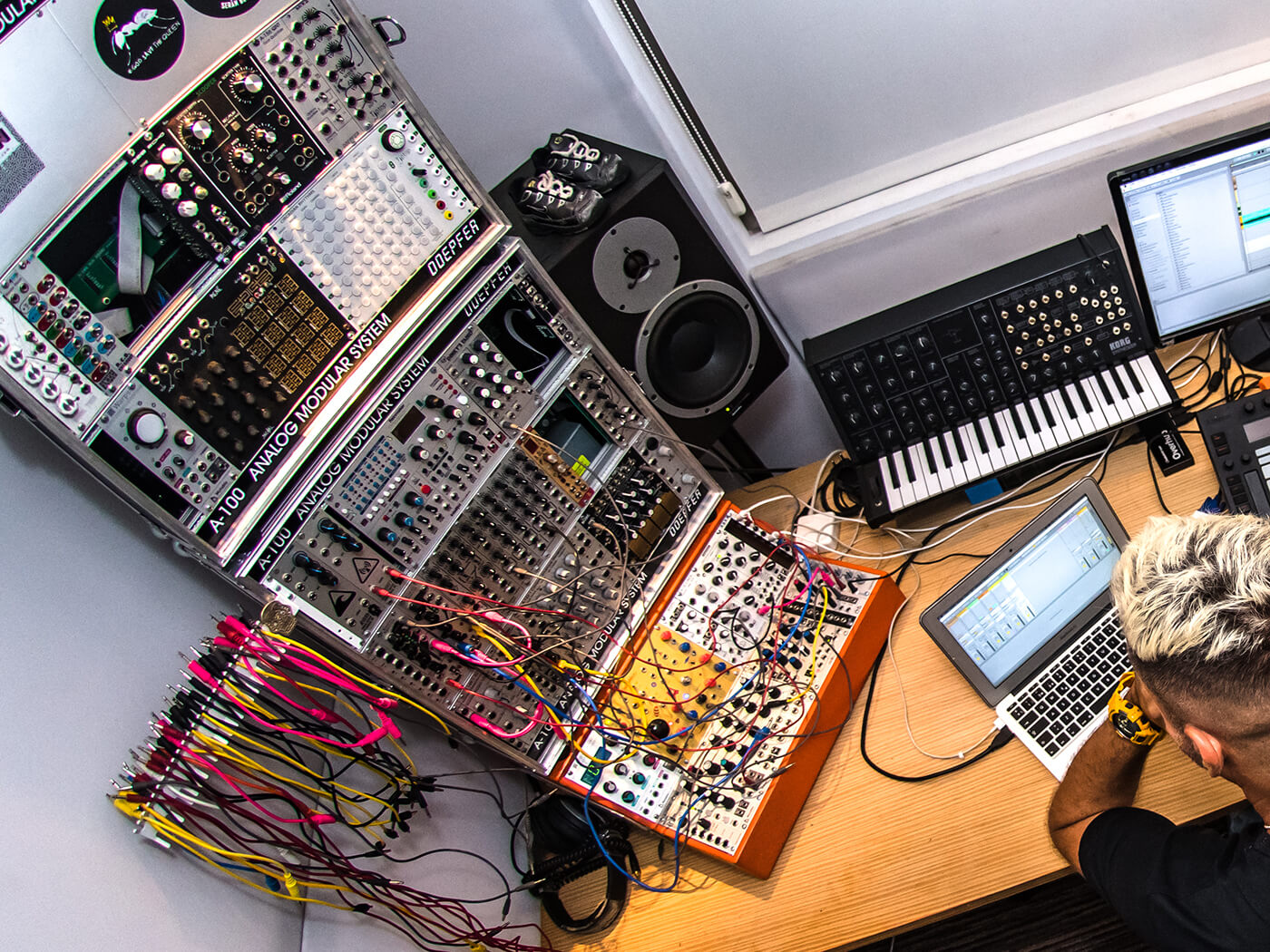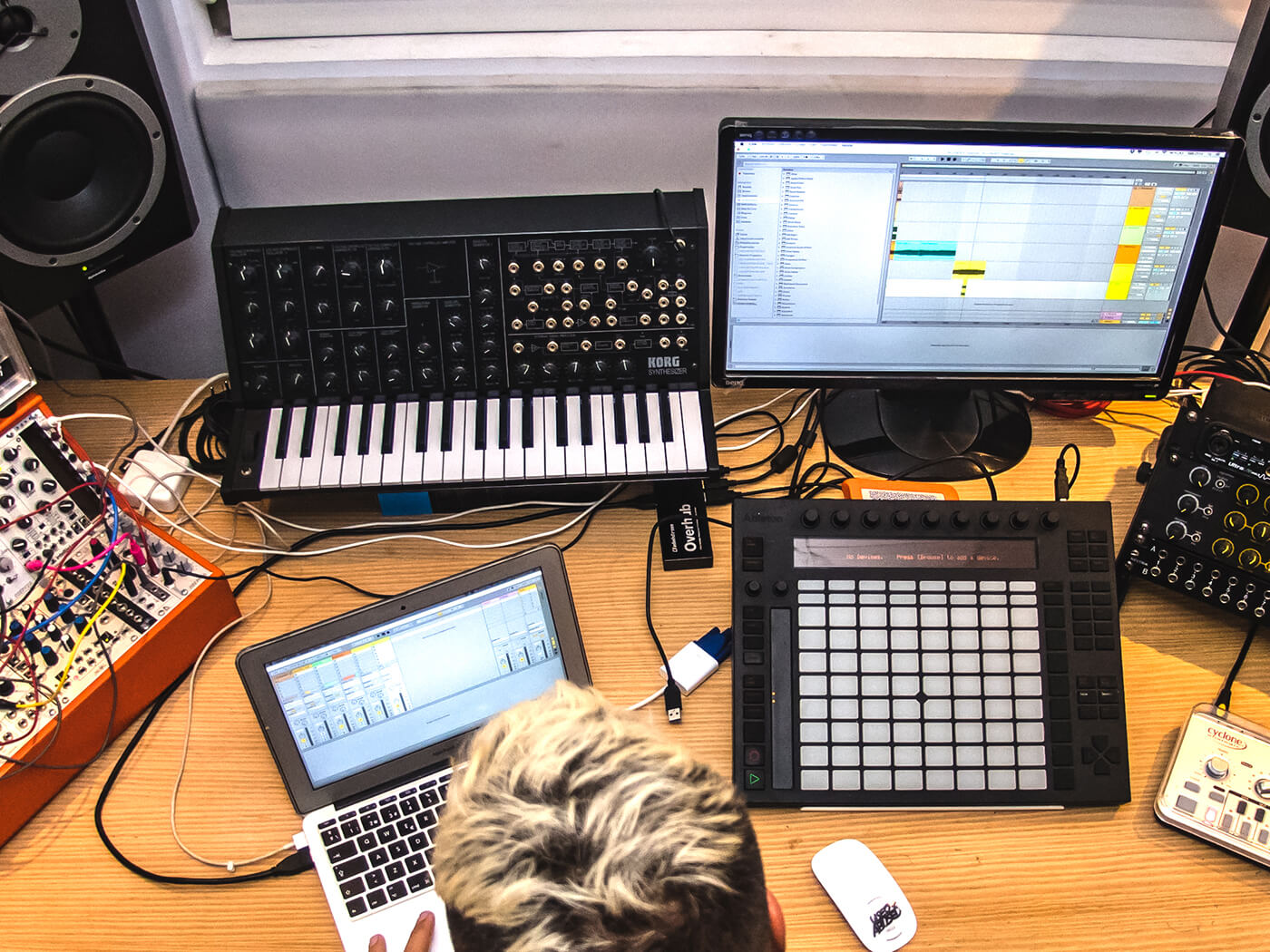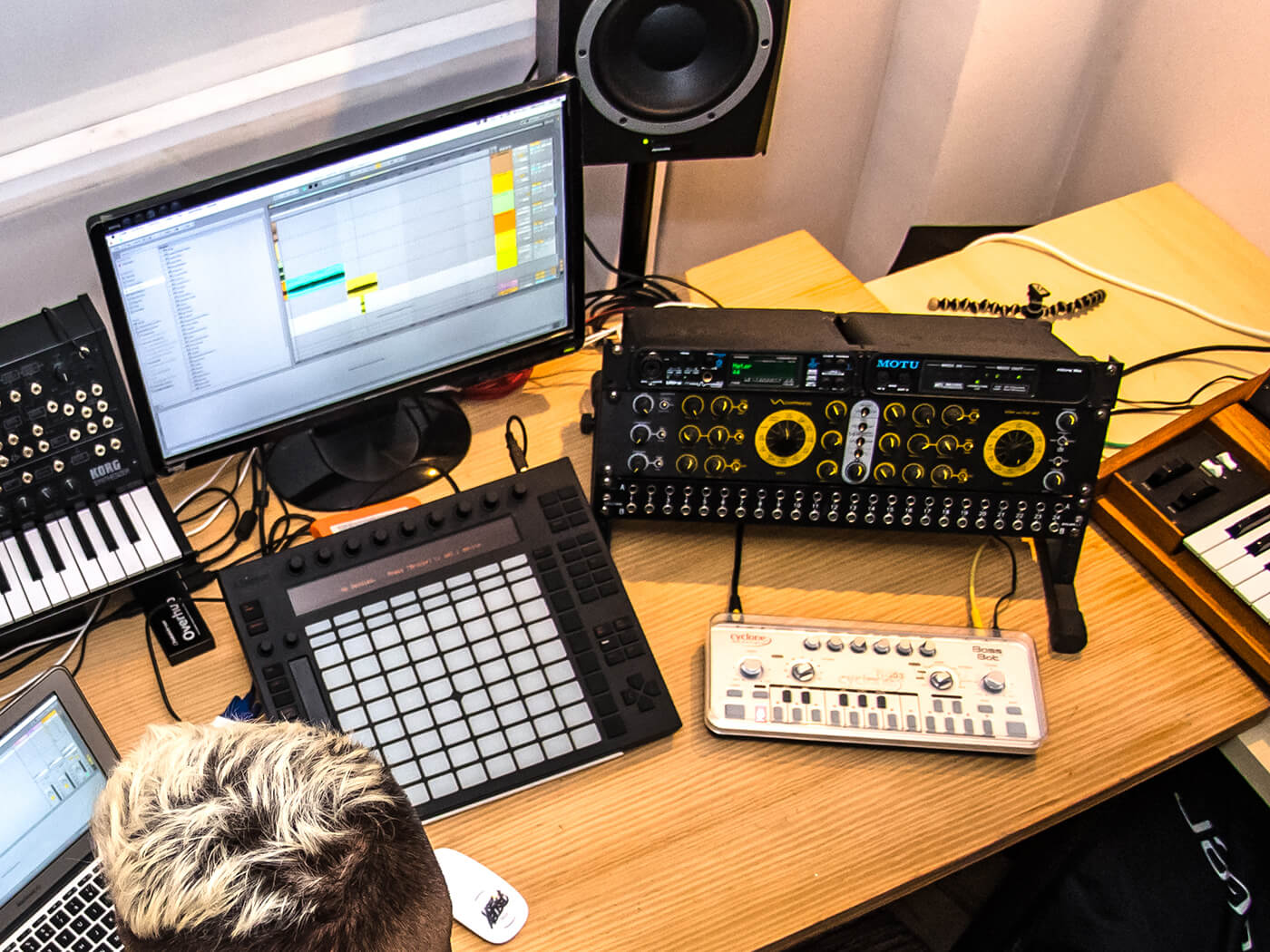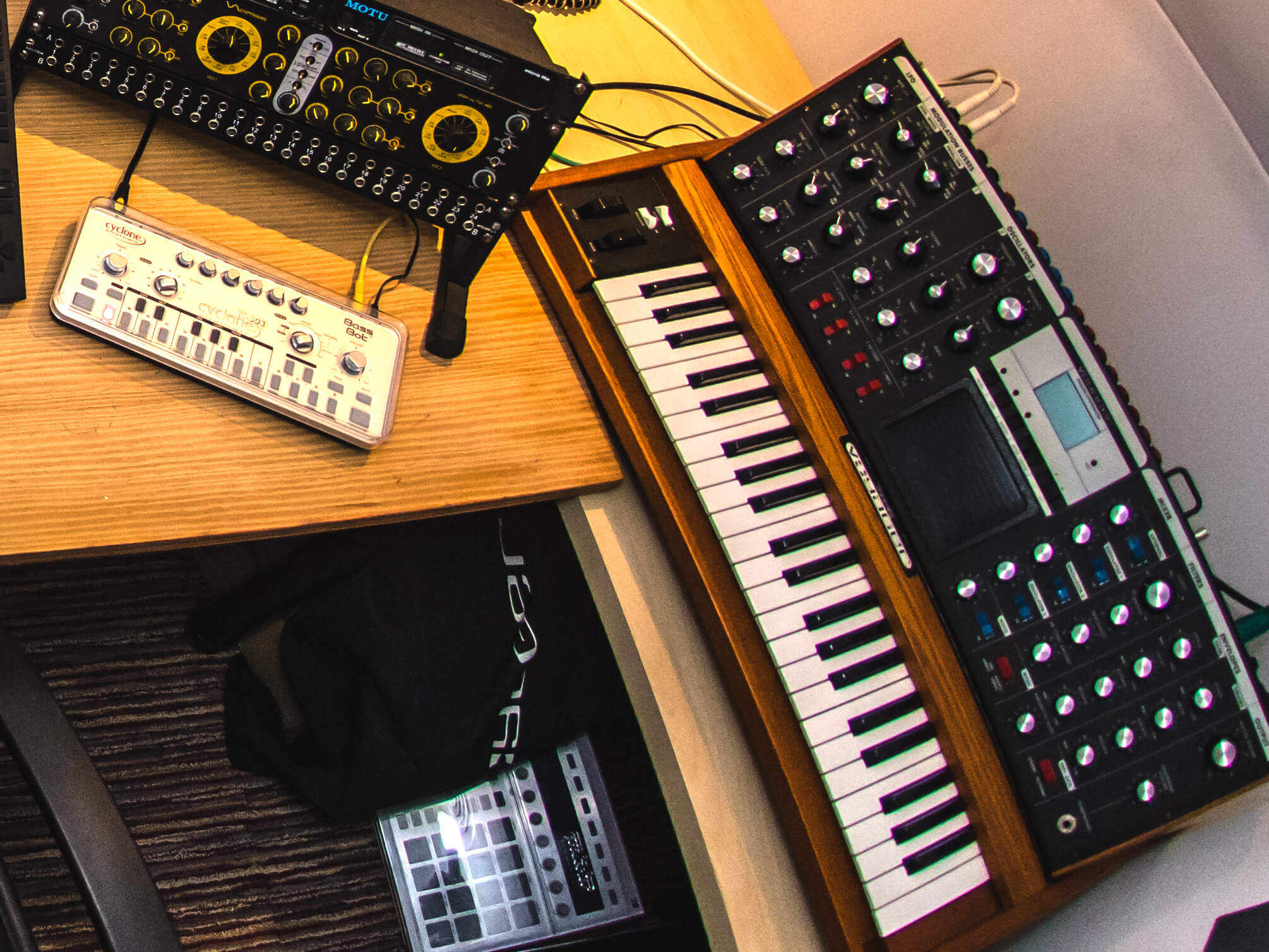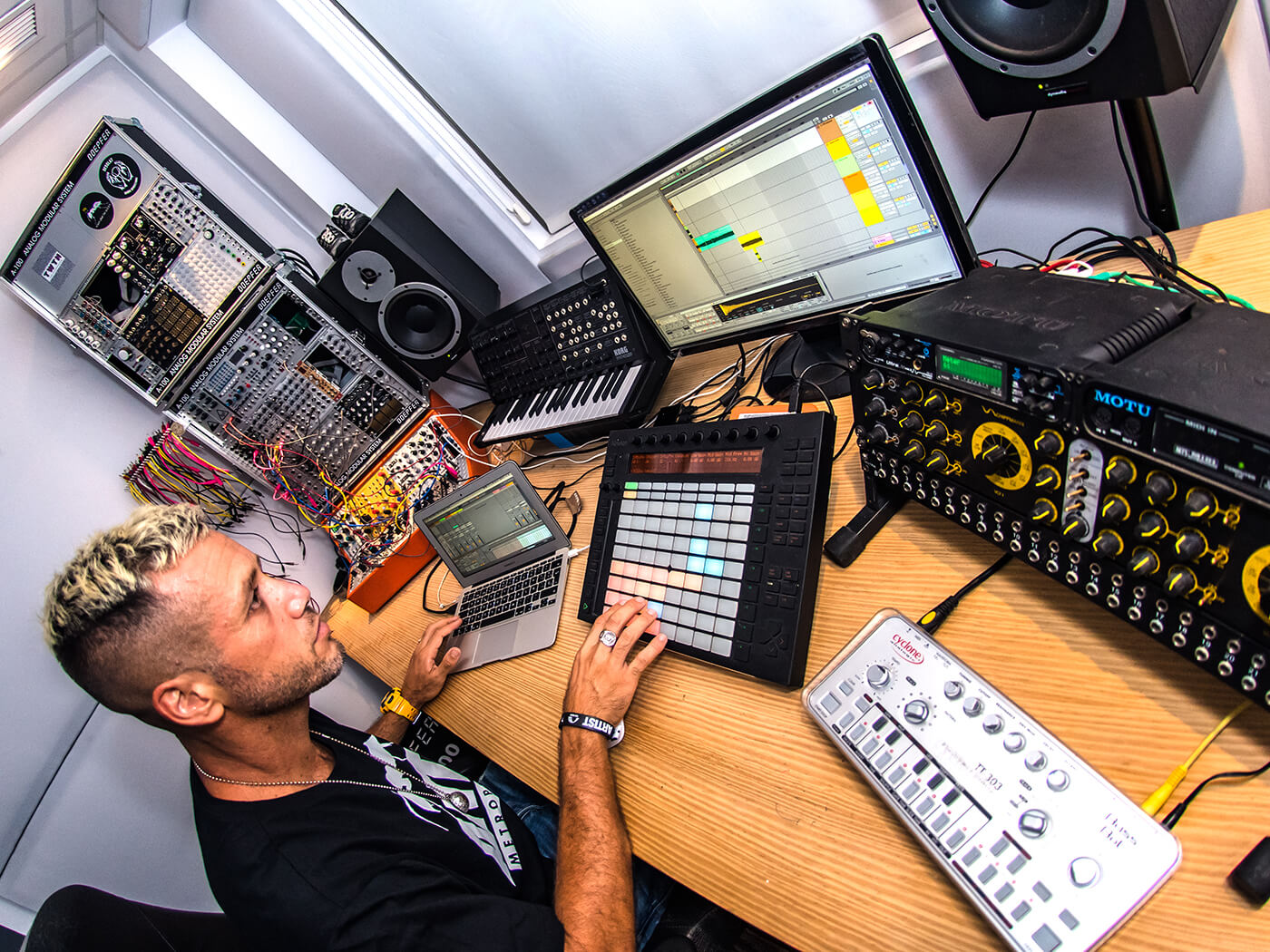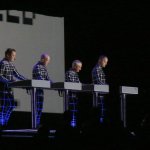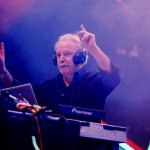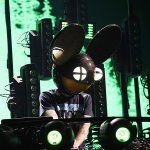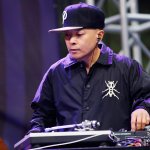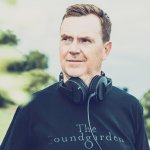Techno star and Ibiza mainstay Francisco Allendes gives us production tips and a tour of his gear
This rising talent combines his healthy gear obsession and passion for electronic music to produce quality underground techno from the heart of the Ibiza scene.
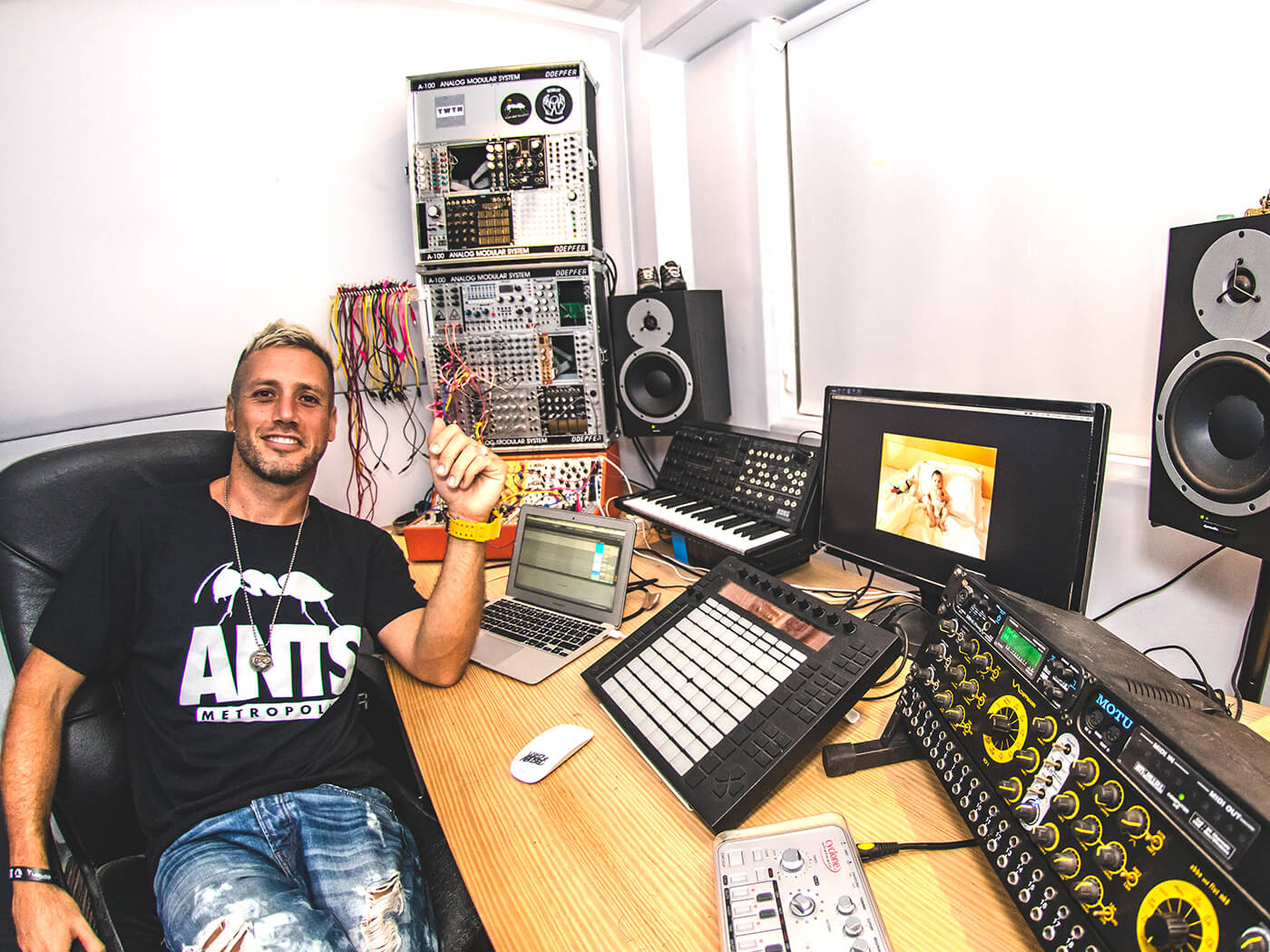
Chilean DJ and producer Francisco Allendes has been slowly rising through the ranks of the techno scene, releasing on labels such as Desolat, Crosstown Rebels, VIVa Music, Cadenza and many more. He’s been a resident of Ushuaïa since 2010 and a monthly regular at the incredible ANTS party, too – and once we discovered he was not only an incredible musician but a gear freak too, we knew we had to track him down for an interview.
Here, we take a look inside his Ibiza studio and find out more about his gear of choice, production techniques and his journey to becoming a celebrated techno talent, studio obsessive and modular synth fan.
Tell us about when you first became aware of music and when you knew you wanted to be a producer and DJ?
My first contact with music was when I was seven or eight years old. I had a neighbour that was obsessed with classical music. All the walls of his room were full of vinyl records and tapes of almost all the classical composers you could imagine and every time we visited his place, I wanted to go in the room to see this huge library. He saw I liked this, so he would give me some tapes every week. So in the end, I had a decent collection of Bach, Vivaldi, Mozart, Beethoven – all before I was even 10 years old.
So then I started to pay attention to orchestral instruments and I developed a big interest in the violin. I started asking my parents if I could take classes. My neighbour introduced us to a teacher and I started my journey with music.
I studied violin for, like, eight years and also played some guitar, but my world changed completely when I discovered synthesizers and computer music-generating tools. When in bands, it was always a game of compromises, as everyone wants to be part of the creative process and so sometimes, songs had parts that I didn’t like. For example, the drummer might have an idea to play one thing and then me another… but then what could I do? With computers, though, I could write the full song and have total control on the writing also and so very quickly, I abandoned the band-orchestra formula to go down the solo-producer road.
I started playing records with a friend when I was at university, basically to have fun and maybe earn some extra money. We played rock, funk, Latino and some electronica, but all were very far from house and techno. But I quickly started to develop a taste for electronic dance music and I developed this on my own, as my then DJ partner decided to quit DJ’ing and move on to write poetry and theatre.
The parties got better and I started making music to play, I made my first record, I travelled to the north and to the south of Chile to play and when I finished university, I thought I would give it a try as a job, rather than a nine-to-five desk job. And here we are, 13 years later and I’m still avoiding the desk job!
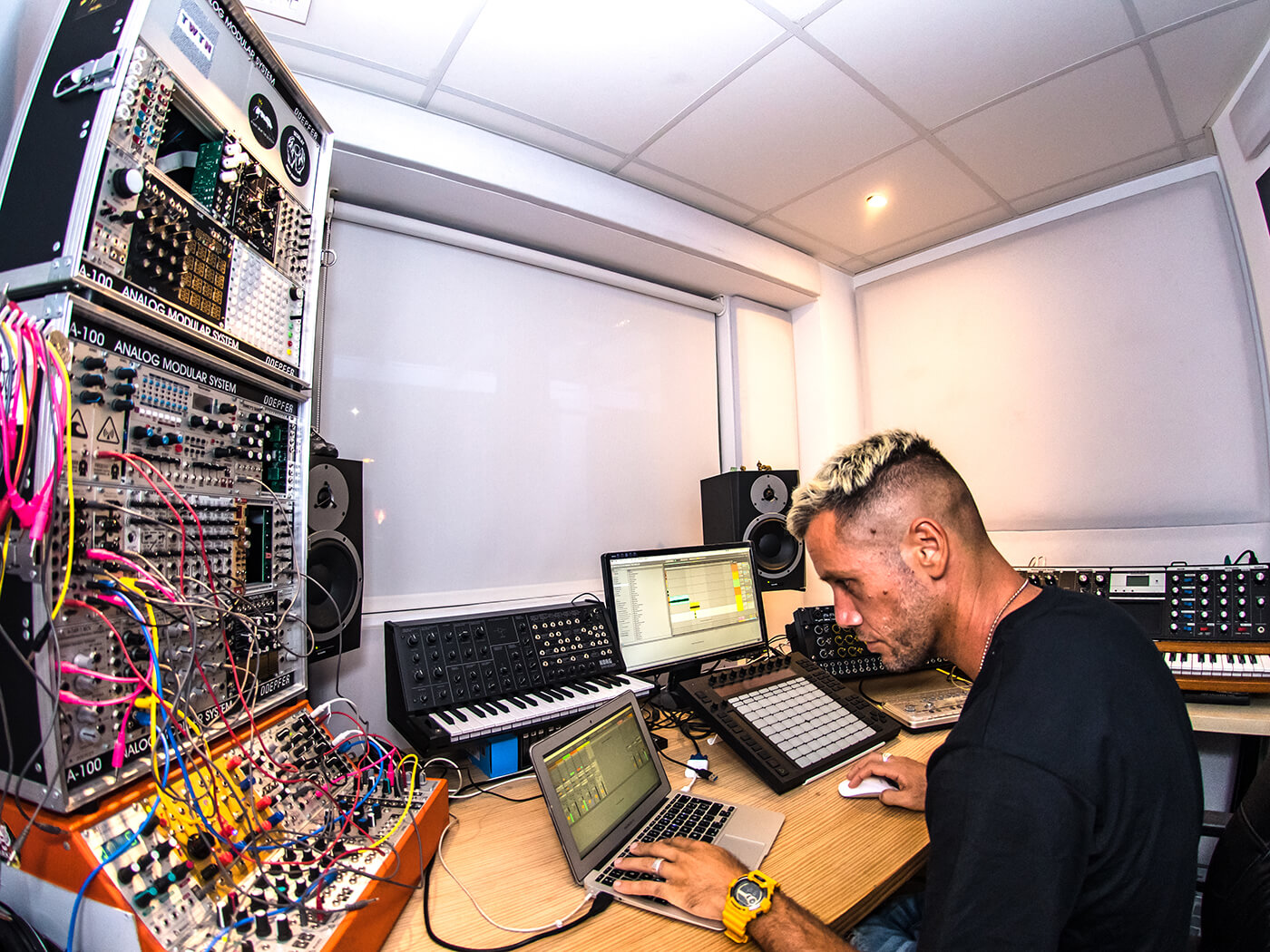
What were your first memorable tracks?
From my rock era, there are a few tracks that opened the door to a new universe for me, Pink Floyd’s On The Run, for example, I would listen to again and again! Also, Frank Zappa had some great electronic compositions that were way beyond the time they were composed.
In dance music, the first two records that got me hooked were Bob Sinclar’s Paradise and Dimitri From Paris’s A Night In The Playboy Mansion. Those two tracks were my first introduction into electronic dance music. Neither have the most underground sound, but to me and to what I knew before that, they were like an epiphany.
Your move from Santiago to Ibiza made a huge difference to your career. Would you still advise new DJs to head to Ibiza to break through?
I moved to Ibiza in 2010, because I had the chance to be one of Ushuaïa’s resident DJs. The person working on the bookings at the time there liked my music and after talking for some months, I got offered the position. I didn’t hesitate for a second and took the job. It’s been almost 10 years now and I know the island and what goes on here. It is a place of great opportunities and people from all around the world come here with the dream of becoming the next big DJ. This is of course one of the places in the world that can happen!
Over these years, I’ve seen many people come, some succeed and some don’t and competition is so savage! But for me personally, I had the good fortune of arriving here with a great booth to play two or three times a week alongside huge artists and if I hadn’t had that, then I probably wouldn’t have moved. Now I know it was all worth it, as I get to play regularly at the best underground party on the island, ANTS.
Is there a risk of spending too much time partying?
Yes, you definitely could, but what I see is the chance to go and see other artists performing here every day and the opportunity to both meet and learn from them. If you really want to live working in music, you need to know when to party and when not to.
Do you have a studio in Ibiza?
I do! I’ve had different studios and setups throughout the years, but right now, my equipment is set inside the Ushuaïa studio. The heart of my setup is of course my laptop running Ableton, but I also have some cool hardware. When I arrived in Ibiza, one of my dreams was to have a big studio full of machines, which I did, but this has changed since.
I had a lot of synths and outboard gear, but after a few years, I got really annoyed about all the cables, plugs and heat in the room! I had a Minimoog Voyager, Arp Axxe, Roland SH-101, Dave Smith Pro 12, some MFBs, a Distressor compressor, some preamps etc and I’ve also had a Roland Airas and various drum controllers. But I realised I only used the machines that I could reach when sitting at my desk and so many of the big keyboards I never used, as they were on a rack at the back of the room.
Then I got Eurorack fever and sold a lot of my stuff to buy what is now my beautiful and beloved modular that is kept very close to my hands on my table. I kept the things that I used the most and so for the past three years, this is the gear I’ve used. I only regret selling my SH-101. People say you learn with mistakes, but I have had this synth twice and sold it both times – I’m such a loser! [laughs]
What have been some of the production techniques that have really changed the way you make music in the last few years?
The addition of the modular synth in the studio was a game-changer. Thing is, I don’t use the modular for the big important things, but it creates textures, effects and things that I really couldn’t always plan, things that I don’t know how to program and these things sometimes are the details that make the groove full and more driving. For example, a very simple thing like white noise. I can trigger it from a plug-in and I will have a white noise that will help on a build or a drop, but, if I do it from the oscillator on my modular, I can modulate the frequency cutoff with Make Noise and add some Martian delays with Tiptop Rainmaker and you will have the coolest white-noise effects ever! It’s just a detail but, well you know, it’s the little things that make the big differences.
Also, I found my favourite bass generator and from there, everything has become way better. For me, and I think for a lot of people, the kick-bass combo is the hardest to get to sound great. The cool thing is that if you get that rolling, the rest will come. So I found this preset inside of Reaktor on the factory sound bank. It’s a horn emulator called Steampipe, and if you go on the presets, there is one called Mute Bass. You turn off the reverb, do some slight changes on the envelope and you will get some bone-breaker sub bass: most of my Desolat bass comes from that plug-in and I tell you, it is loud!
How do you start a track and find inspiration – what do you find the hardest process is when making music?
I used to go in the studio and start putting a kick and a snare on loop and start building from that: throw some random percussion hits here and there, add some filter and then, after a while of listening to the loop, my mind would sing the bass, which I would draw on Reaktor. And from there, I would throw in some vocals until I had something I liked and just then do the cymbals, etc. That system worked very well for many years, but over this year, I’ve found that I didn’t produce anything that excited me anymore. So, I explored methods to create a new workflow in the studio.
Now, when I sit in the studio, I have a completely different ritual. First of all, I work a lot before going in the studio, researching ideas. An idea is not a bass or a drum loop, but a hook. It can be a voice, a synth, a special rhythm, or a combination of all, the element that people will remember from the track. I am all week with open ears, trying to find hooks from where I can build a track.
Of course, when I go to parties, I listen to music to find hook ideas, but also on the street, watching cartoons with my son or documentaries with my wife. So when I go in the studio, I put a kick and a snare on loop and try to materialise a hook before anything else on the track. It may be quick or maybe it takes me a week, but once that’s done, the rest is super easy and normally in one day, the track will be ready.
What’s on your DJ rider?
As in the studio, I’ve also changed my DJ setup and with time, I’ve moved from vinyl to Traktor vinyl, to Traktor DJ to USB with CDJs, with Cycloops, guitar pedals, Pioneer RMX-500, RMX-1000 effects and I’ve come to find that the safer and simpler setup is the best for me. I’ve had laptops going dead mid-set, or Traktor vinyl going crazy on the pitch and I decided that I never want to have any doubt or fear at the moment of playing records to deliver the best set always. So now, I use all Pioneer. Pioneer mixer, CDJs and an RMX effects unit and use that with rekordbox to do my sets.
What does the rest of the year hold for you? What are you looking forward to?
I’ve played several shows already with ANTS at Ushuaïa this year, including two mainstage sets and on some of their festival shows around Europe. I will be back playing in Fisher’s room in the Bodyworks event at Hï in September; October, I’m playing for Carl Cox’s Awakenings party at ADE in Amsterdam and I’m also playing with Erick Morillo, The Martinez Brothers and on other supercool gigs around these coming months. With releases, I’m putting out a three-track EP on Rawthentic Music, the 10th anniversary remixes for Llovizna on Cadenza with amazing remixers, including Luciano and I also have a few other big releases which I can’t talk about just yet.
For more Francisco Allendes, follow him on Facebook and Instagram. Read more interviews with artists and producers here.
